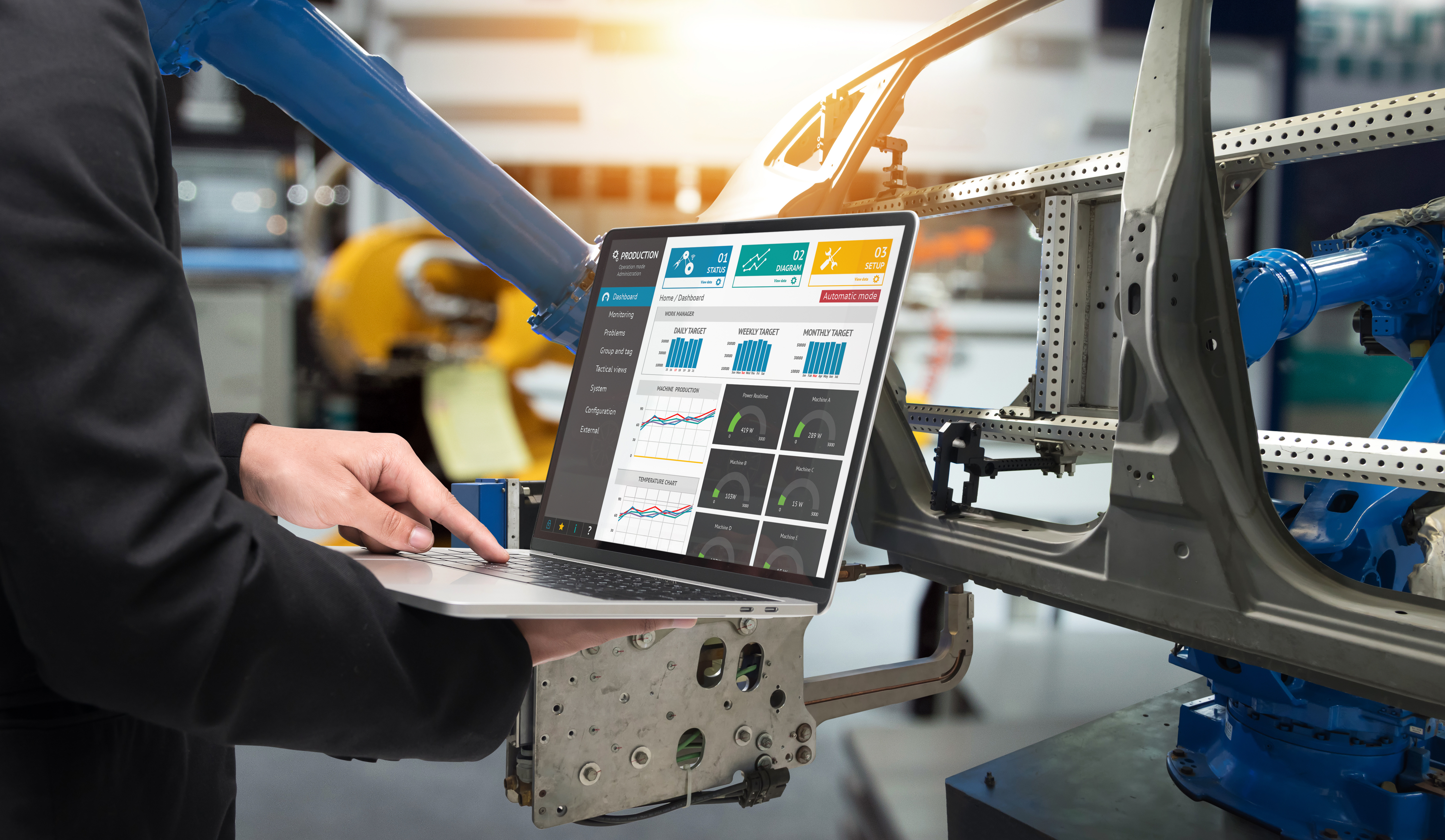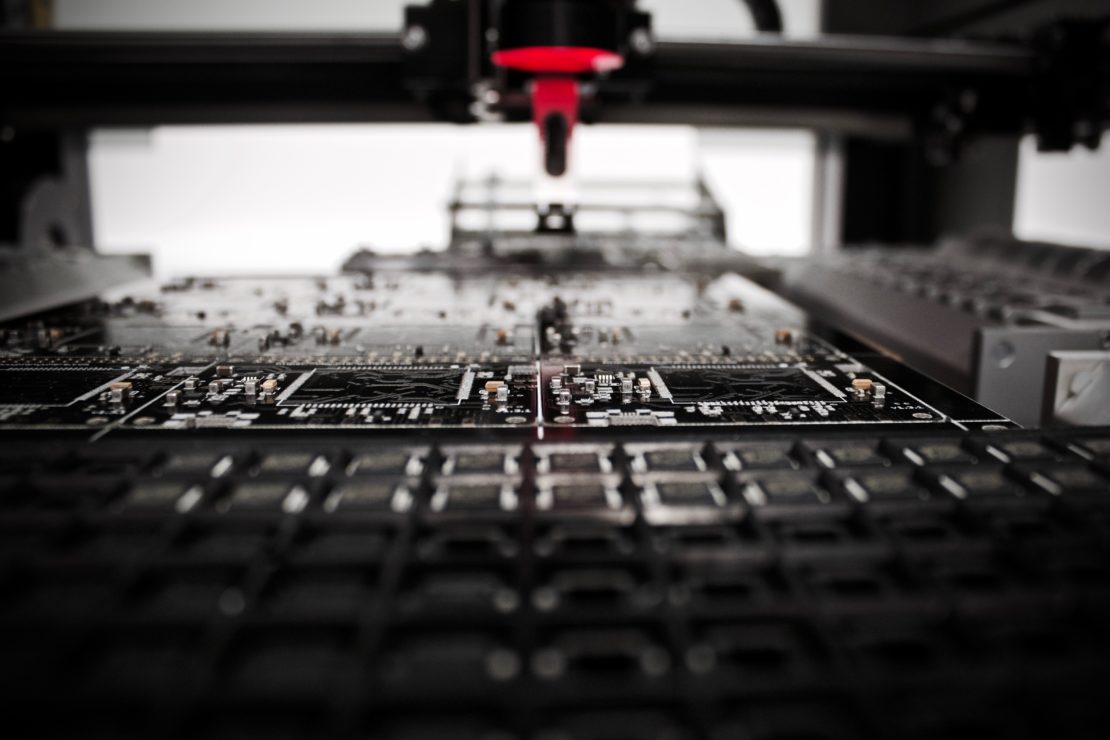
Factory 4.0: an opportunity for competition and industry revitalization
In the last decade, the concept of Factory 4.0 has attracted industry leaders seeking innovative machines to increase their productivity and decrease production costs. The Fourth Industrial Revolution is characterized primarily by factories going digital and using innovative technologies: artificial intelligence, smart objects, augmented reality and Big Data are all included in this fundamental shift. Government initiatives promote these digitized factories with the hope of encouraging companies of all sizes to use these technologies to revive industry’s essential role in the French economy and become a global example. The French government is investing €500 million to support companies as they become the industry of the future[1].
The development of Industry 4.0
As companies face new expectations from consumers and a growing individualization of services, digital and new technologies have emerged as a viable solution to this new paradigm. Industry 4.0 allows companies to move away from mass production and towards a more flexible production model at no additional cost. One example is 3D printing, which is revolutionary in terms of personalizing production. The transition was made possible by new tools and technologies. But actually using these technologies requires a significant amount of adaptation from manufacturers.
Cobotics — a portmanteau of “collaboration” and “robotics” — is the collaboration between humans and machines, with the goal of automating tasks that are repetitive and difficult for humans. This market is booming, even if France is falling considerably behind other European countries. According to the latest numbers from the International Federation of Robotics, the number of industrial robots in the world is expected to increase to 3 million by 2020, compared to 1.1 million in 2010[2].
Big Data and the Cloud also help improve the performance of smart factories, as these technologies can store and analyze data recorded by sensors in machines. The data can then be used to focus and optimize production strategies and even predict failures. But this massive influx of data means that companies have to take extra steps to secure their precious numbers. This can be done via blockchain integration.
Augmented reality is also making headway in manufacturing, as operators can simulate their projects in a real environment. Augmented reality glasses can superimpose all kinds of information onto whatever users are looking at in order to provide guidance and make tasks easier. As a result, users can intervene if a certain type of failure or outage occurs, and even identify potential failures before they happen.
Predictive maintenance is based on constant surveillance of machines, which is made possible by the Internet of Things. Manufacturers can predict and anticipate failures based on collected data and therefore significantly reduce losses that could stop production in the event of an outage.

Supporting manufacturers in the shift towards reindustrialization
As more and more factories go digital around the country, there’s a growing need to support production sites with their digital migrations and assist employees in using new digital tools. Rexel offers an approach that includes all the key points needed to make the transition: design, management, production and maintenance. A barometer from consulting firm EY highlights how industry transformation is accelerating and the impact it has on a company’s training and organization. Fifty percent of all companies now have a digital transformation training plan[3]. This shift has prompted four out of every ten companies to profoundly change their organization, up two-fold since 2016. These changes also lead to the creation of new jobs and recruiting needs, which positively impact a country’s economy.
It is clear that the digital transformation of industry is key to revitalizing this slumping sector. Manufacturers fully understand the challenges that come with this transition, as 80% of industrial companies reported they were involved in transforming their business model[4]. It is a way to boost productivity: manufacturers hope to double their annual earnings and reduce production costs by 10% to 20%, not including raw materials.
The industry of
the future will profoundly alter industrial processes. The challenge is
two-fold: meet a constantly changing demand while simultaneously creating a
road map that will guarantee gains in productivity and a competitive position
in a deindustrialized world.
[1] https://www.frenchweb.fr/industrie-du-futur-letat-consacre-500-millions-deuros-aux-pme/336283
[2] https://ifr.org/ifr-press-releases/news/robots-double-worldwide-by-2020
[3] EY Barometer: https://www.ey.com/Publication/vwLUAssets/ey-barometre-industrie-du-futur/$FILE/ey-barometre-industrie-du-futur.pdf
[4] EY Barometer

